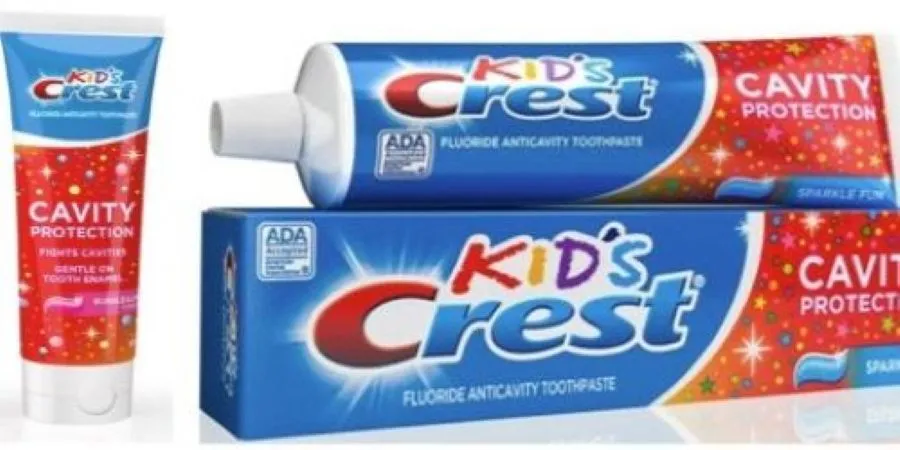
- Industry news
Industry news
- Category news
- Reports
- Key trends
- Multimedia
Multimedia
- Journal
- Events
- Suppliers
Suppliers
- Home
- Industry news
Industry news
- Category news
- Reports
- Key trends
- Multimedia
Multimedia
- Events
- Suppliers
Suppliers
P&G lawsuit over misleading toothpaste packaging in the US moves forward
Key takeaways
- Parents accuse P&G of promoting unsafe amounts of toothpaste for children on its Kid’s Crest packaging in the US.
- A US federal judge rejected P&G’s attempt to dismiss the case, allowing state-level consumer protection claims to proceed.
- The lawsuit claims misleading imagery conflicts with dental safety guidelines recommending only a “smear” of fluoride toothpaste for young children.

Procter & Gamble is facing a lawsuit in the US that alleges its Kid’s Crest toothpaste packaging incorrectly promotes unsafe amounts of toothpaste for children.
The case, known as Gurrola et al v. Procter & Gamble, began in January 2025 after a group of parents filed the initial complaint, which was taken up by the District Court for the Northern District of Illinois.
P&G then sought to have the case dismissed by the court, but this was rejected last week by District Judge Jorge Alonso.
Alsono states the parents can now continue attempting to prove that P&G is infringing consumer protection laws by depicting an unsafe amount of toothpaste on the packaging of its Kids’ Crest toothpaste, and “failing to sufficiently warn and/or misrepresent the product’s safety.”

“The fact that swallowing fluoride poses health risks to children is an essential element of the story plaintiffs are telling — it is the reason for the recommendation that they use only a smear or dab,” says Judge Alonso.
The toothpaste packaging in question features an image of a full strip of toothpaste on a toothbrush, accompanied by the seal of approval from the American Dental Association.
Fluoride, in small controlled amounts, provides certain dental benefits, such as strengthening enamel. However, excessive fluoride exposure is unsafe, especially for children, who often swallow toothpaste during brushing.
Packaging Insights contacted P&G for commentary.
Misleading packaging images
 Excessive fluoride exposure is unsafe for children, who often swallow toothpaste during brushing.The lawsuit invokes various state consumer protection claims, including “false” advertising and “unfair” marketing practices.
Excessive fluoride exposure is unsafe for children, who often swallow toothpaste during brushing.The lawsuit invokes various state consumer protection claims, including “false” advertising and “unfair” marketing practices.
“Despite the Defendant’s (P&G) knowledge that children under three should only use a tiny ‘smear’ of toothpaste, Defendant’s Kid’s Crest One packaging shows a full strip of toothpaste,” alleges the lawsuit.
“The Defendant knows its fluoride toothpastes, including its ‘kids’ versions, are not safe for young children to swallow. But it deceptively markets these Kids products in ways that lead parents and caregivers to believe they are formulated to be extra safe for children — which Defendant knows is false.”
The Centers for Disease Control and Prevention state that children who begin brushing at the age of two should use a “smear” of toothpaste, roughly the size of a rice grain, until the age of three.
Federal or state authority?
P&G attempted to dismiss the case on federal preemption grounds, arguing that federal law already regulates fluoride toothpaste labeling, so state-level lawsuits like this should not proceed.
It argued that toothpaste that contains fluoride is an OTC drug regulated by the US Food and Drug Administration (FDA) under the Federal Food, Drug, and Cosmetic Act; it does not come under state jurisdiction.
P&G also stated that packaging directions inform consumers about the correct amount of toothpaste for children.
The FDA has approved label and dosage representations for fluoride toothpaste packaging.
Dismissal rejected
 The class action complaint includes the Kid's Crest product shown on the image, depicting a full strip of toothpaste (Image credit: Crest). However, Judge Alonso recently ruled that federal preemption does not apply to this case because the plaintiffs are not seeking labeling changes that conflict with FDA regulations.
The class action complaint includes the Kid's Crest product shown on the image, depicting a full strip of toothpaste (Image credit: Crest). However, Judge Alonso recently ruled that federal preemption does not apply to this case because the plaintiffs are not seeking labeling changes that conflict with FDA regulations.
Instead, they are alleging that P&G is using misleading marketing imagery, which falls under state consumer protection law.
Michael Connett, a lawyer for parents in the P&G case, says: “The recent court decisions are an encouraging sign that these companies may finally be held to account.”
The lawsuit was one of six filed in January against toothpaste and rinse makers, including Colgate-Palmolive, over alleged misleading packaging.











